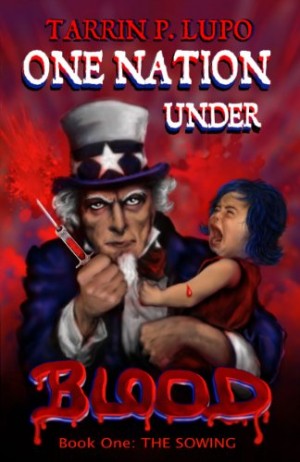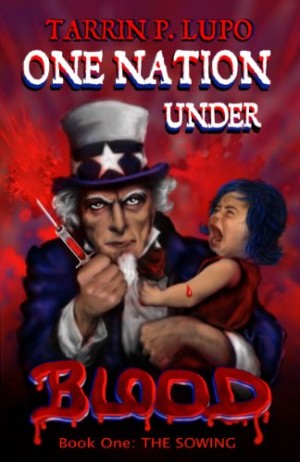
With an official release date of October 30, 2012, just in time for Halloween, author Tarrin Lupo presents us with a new sort of vampire tale that is certain to make any libertarian’s skin crawl. While not intended to be a traditional horror novel, One Nation Under Blood is nonetheless a frightening tale of what can happen when government regulation and patriotism go too far.
In Lupo’s dystopian novel, it is discovered that blood transfusions can offer more than the gift of life to a needy recipient. Performed correctly, they serve as a fountain of youth, transferring rejuvenating properties from the blood of a child into the veins of an adult. Older generations are thrilled at the chance to become healed of their ailments and erase years from their appearance, leading to a huge demand for young blood that creates an unparalleled shift in the balance of wealth from the old to the young.
When blood transfusions become a target for politicians eager to profit from the new technology, the demand overwhelms the willing donor population and a new source of young blood must be found. By the power of legislation and with the help of a successful propaganda campaign, orphans and the children of immigrants are soon forced into concentration camps where they are made to give up their blood as a patriotic service to their country.
By telling the story through the eyes of those being taken advantage of, the author allows us to put ourselves in the place of those who face similar discrimination today. Although the novel is fiction, readers will find many similarities between the story world and our own. Perhaps the scariest notion is that we can easily imagine our society being swayed into nearly identical unspeakable actions under the pretense of protecting the children.











